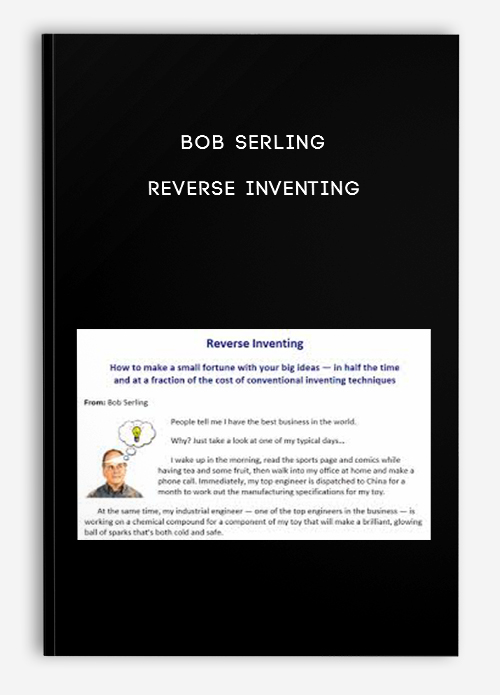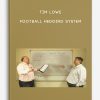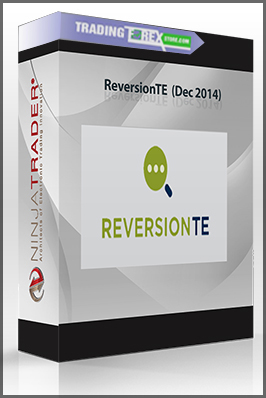Reverse Inventing by Bob Serling
Original price was: $1,997.00.$195.00Current price is: $195.00.
Product Include:
File size:
- Description
Description
Reverse Inventing by Bob Serling
**More information:
Get Reverse Inventing by Bob Serling at bestoftrader.com
Description
How to make a small fortune with your big ideas, in half the time
and at a fraction of the cost of conventional invention techniques
People tell me that I have the best business in the world.
Why? Just take a look at one of my typical days …
I get up in the morning, read the sports page and comics while having tea and some fruit, then I go into my home office and make a phone call. Immediately, my senior engineer is sent to China for a month to resolve my toy’s manufacturing specifications.
At the same time, my industrial engineer, one of the best engineers in the business, is working on a chemical compound for a component of my toy that will produce a shiny, sparkling ball of sparks that is cold and safe.
My patent attorney? It ensures that all the appropriate protections are in place so that no one tries to create a competitive product. It is also closing deals with six of the top celebrities in this field to display their names and companies on my toy.
Then there is my graphic design team. They are working hard to create an engaging and mind-blowing package that kids will love. And a collection of full-color, full-page ads to be published in children’s magazines. Oh … and another team of creatives is working on storyboards for television commercials that will spread the news to millions of children every morning during cartoon shows.
Once all that work is complete, hundreds of other employees take action for me. A team of vendors is spread across the globe, some in person, others by phone, to make sure Toys-R-Us, Wal-Mart, Kaybee Toys, Target, CVS, Walgreens, and dozens of small, large pharmacy chains department stores and gift shops are filling their shelves with my toy.
Behind the scenes, the production line is rolling, producing hundreds of thousands of copies of my toy, all featuring the six celebrities whose popularity makes this toy sell like hot cakes. More employees are working on the production line assembling my toy, inserting the toys into their packaging, loading the packages into boxes, placing the boxes on pallets, and then shipping them around the world to the stores that will sell them.
But here is the best part …
I use the term “my” employees, and they are, because they are all dedicated to making my toy successful. BUT: I am not in charge of any of them, I do not pay a penny of their wages, they do not inform me and I am not responsible for seeing that any of the tasks I have listed here have been done.
That’s because I’ve licensed my toy idea to a major toy company and all of these employees are working on my behalf … but I don’t have to pay their wages or lift a finger!
Four “reverse invention” case studies in action
Case study n. ° 1: Skateboard Toy
You may have heard of the toy skateboard that I created and licensed to a major toy company. It featured the Tony Hawk logo and half a dozen other high-profile skateboarders and was sold at Toys-R-Us, Wal-Mart, Kaybee Toys, Target, and thousands of pharmacies and other retailers worldwide. How did I achieve this despite having no previous experience in the toy industry? By applying the “reverse invention” steps I showed you above. Also, I currently have a couple of new toys and gift items that are being considered by big corporations.
Case study 2: educational software
I co-founded a software company, initially licensed the software, and then sold it for $ 6.4 million in just 17 months. That company continues to strengthen and has an impressive client list that includes General Electric, Cars.com, Johnson & Johnson, Kaiser Permanente, Pioneer, Sunguard, and more. Here again, I had no previous experience in the software or education field.
Case study n. ° 3: Marketing campaigns
Although I am heavily involved in creating and licensing ideas for products and services, I am probably best known for licensing marketing campaigns to my clients, and for teaching thousands of people how to do it.
There is a letter I wrote that is now known as “The $ 25 million letter.” People call it that because this one and a half page letter struck a deal for a $ 25 million contract the first time my client sent it. But equally important, I took this same letter, made slight modifications, and authorized it to clients in 14 different industries. And he collected attractive fees and royalties each time.
I also created a licensing strategy for the late Corey Rudl that pulled in $1 million profit for his business in the first week — and a total of $2.6 million in a few months. And I made a hefty six figures just for my idea.
Or how about the 3 word phrase I created for a prominent sales training company that paid me a quick $15k to use it? Can you think of a faster way to make a serious profit than that? I could give you many more examples of marketing ideas and campaigns that I’ve licensed out, but I’m sure you get the picture.
Case Study #4: Licensing Agent
A minute ago, I mentioned that one of the world’s elite training companies has hired me to license their materials to large corporations. And that I get a five-figure retainer plus a significant percentage of the profits for doing this.
Well the deal is even better than what I described. Because what I didn’t mention is that a deal like this can easily continue for ten years or more. Which means I collect my royalties for years to come. And the more corporations I can find to license these training materials to, the more money I make.
But what makes it even sweeter is that not only can I act as a licensing agent for a company’s materials like this, but I can also do this for dozens of other companies’ products as well.
After all, the licensing process is nearly identical regardless of which industry you want to use it in. So there’s nothing stopping you from acting as a licensing agent — just as I do — for a wide variety of products. Which means that you don’t even have to come up with your own ideas for what to license. All you need is the ability to take other companies’ great ideas and license them for an upfront fee and a percentage of the profits.
Here’s how you can duplicate my simple process
and make serious money with your big ideas
What I’ve just shared with you should give you a strong understanding of how immense the opportunity is that licensing inventions and products makes available to you. And how anyone can tap into this to make serious money with licensing.
However, as with anything that’s worth doing properly, while it is simple, it isn’t necessarily easy. Licensing your big ideas takes real work. There are many steps and many nuances to each step.
If you make a serious mistake during any of these steps, it can make all the difference between success or failure. Believe me, I’m made many such mistakes over the years and I know from first-hand experience how just one mistake can derail your entire project.
On the other hand, developing and licensing inventions and products isn’t exactly rocket science. The fact is, I have less than one semester of college and I managed to figure the process out through trial and error.
Now you could probably figure it out on your own too, but it would take you years, just like it did for me. Or, you can get in-depth training and coaching, master the entire process in the shortest time possible, and quickly be licensing out your big ideas and get paid handsomely in return.
All of this is available through my new program, Reverse Inventing: How to make a small fortune with your big ideas — in half the time and at a fraction of the cost of conventional inventing techniques.
In order to make sure you’re capitalizing on every licensing opportunity, I’ll be taking you through my “reverse inventing” process step-by-step, giving you in-depth training, and providing thorough personal support and coaching. So let me show you what we’ll be covering in this unique program.
Comprehensive training in all aspects of creating ideas
and licensing them for substantial profits
In order to benefit from the full profit potential of licensing your big ideas, you’ll discover exactly how to use my proprietary process to “reverse” the conventional licensing wisdom and…
Create powerful product ideas on demand — as many as you’d like, and as often as you’d like
Test the market and know for certain whether your idea will be a winner before you invest any time or money in it
Avoid the costly, time-consuming mistakes caused by the old style of inventing products
Make a quick, accurate “go/no go” decision that lets you capitalize on winning products and kill the losers before they can do you damage
Chart a simple, extremely effective marketing path that maximizes your licensing income
Make a six or seven figure income in a fraction of the time it would take following the conventional wisdom
What you’ll discover will give you the ability to create breakthrough product ideas on demand, test the market quickly and inexpensively, kill the losers and invest only in the winners, and successfully license your products for substantial royalties in the fastest time possible.
Internet Marketing Course
Digital marketing is the component of marketing that utilizes internet and online based digital technologies such as desktop computers,
mobile phones and other digital media and platforms to promote products and services. Its development during the 1990s and 2000s,
changed the way brands and businesses use technology for marketing. As digital platforms became increasingly incorporated into marketing plans and everyday life,
and as people increasingly use digital devices instead of visiting physical shops, digital marketing campaigns have become prevalent,
employing combinations of search engine optimization (SEO), search engine marketing (SEM), content marketing, influencer marketing, content automation,
campaign marketing, data-driven marketing, e-commerce marketing, social media marketing, social media optimization, e-mail direct marketing, display advertising,
e–books, and optical disks and games have become commonplace. Digital marketing extends to non-Internet channels that provide digital media, such as television,
mobile phones (SMS and MMS), callback, and on-hold mobile ring tones. The extension to non-Internet channels differentiates digital marketing from online marketing.















